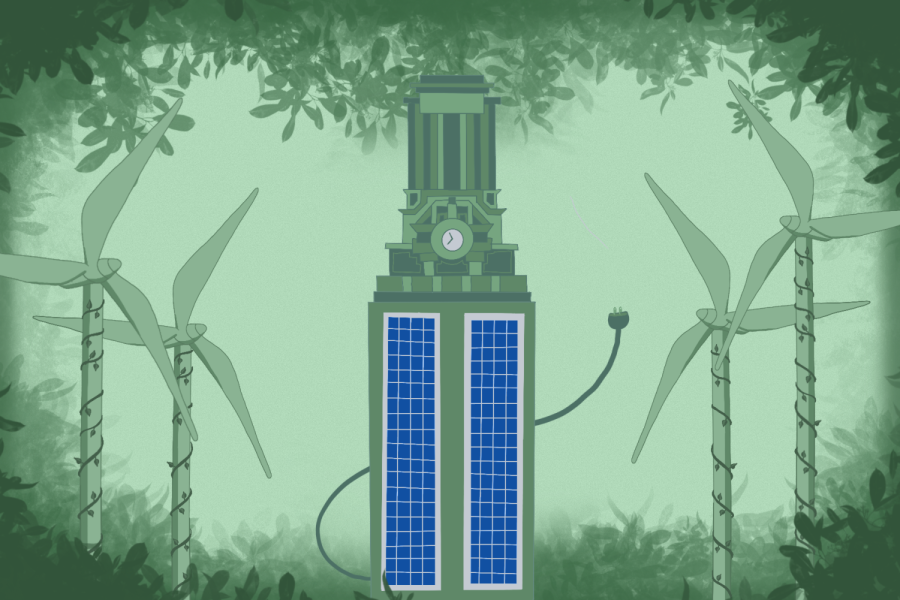Are you less eco-friendly than a petroleum engineer?
November 4, 2022
Editor’s note: This column was submitted to the Texan by a member of the UT community.
Hi, I’m a vegan petroleum engineer. Those two things don’t really seem like they go together, but what I want to talk about is why I think they can, and more importantly, how we can all take steps toward a sustainable future.
A petroleum engineering major at UT is more than just preparing us to go work for an oil company. A significant part of the degree plan includes broadening our engineering skill set to be applicable for companies incorporating renewable energies. In my career, it’s my goal to encourage oil companies to not just manage their emissions but to also take up renewable energies like solar, wind, and hydrogen, which some companies like Shell have already taken steps toward.
I became interested in sustainability when I took my UGS 303: Sustaining a Planet course. I learned about the long-term effects of global warming, how industries can ship their waste to other companies for reuse and how UT’s own Waller Creek has been polluted. The best part of the class was researching our own desired topics; I tracked my daily carbon emissions, discussed nuclear energy and researched the sustainability of Tesla’s electric vehicle production. There is a lot to learn from sustainability classes, and UT ranks among the best schools for research and education regarding energy. I highly recommend looking into a class that best interests you.
Going vegan was another step I took toward making my impact more sustainable. While at the root of my choice were the ethics of animal treatment, it’s easy to find online that going vegan would help reduce greenhouse gas emissions. One Oxford study reports that the world’s food-related emissions would drop by two-thirds if everyone went vegan, whereas another study states that going vegetarian would only reduce carbon emissions by 3% per person. Regardless of the numbers, and regardless of coming from a Southern meat-based diet, I found going vegan to be rewarding and not as hard as I thought it would be. Many food trucks and restaurants in Austin have some vegan options or can at least make something vegan. Some places around campus to consider are Arlo’s, Jesta’ Pizza, JuiceLand, CAVA, and Sip Pho. Some easy recipes can be found online, and the ingredients are widely available at places near campus, like the Target on Guadalupe Street, West Campus Market, or H-E-B.
North America as a whole consistently uses more energy per capita than any other region in the world. At UT, there’s plenty of ways in which we can all be more sustainable in our daily lives. One of the easiest and most popular ways to mitigate our carbon emissions is to simply limit using our vehicles. Most of us walk, skate or ride our bike to school anyway, but busing or carpooling to grocery stores, events and to and from our hometowns are even more impactful ways to decrease our per-capita carbon emissions. Using reusable water bottles instead of bottled water, using a lamp rather than your apartment lights, switching to LED bulbs and donating your used electronics are some of the many ways you can do more to be energy sustainable. Finally, use your voice and your vote this November 8th for Beto O’Rourke, who “aims to create 1.1 million high-paying jobs over the next 25 years by investing in geothermal power generation, hydrogen-fueled energy, offshore wind, solar generation, energy efficiency, and more.”
Botik is a petroleum engineering junior from Seabrook, Texas.











